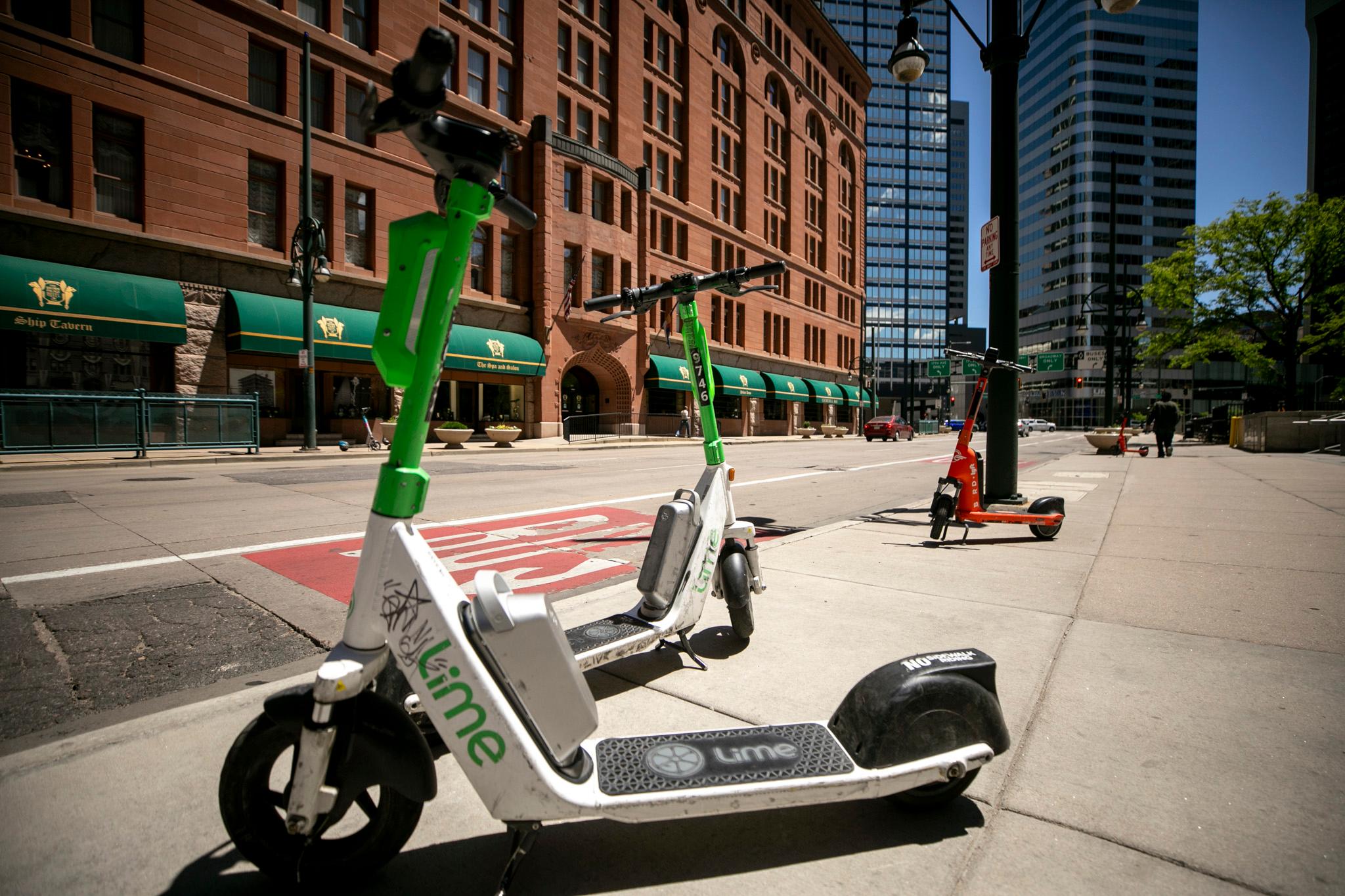Updated at 3 p.m. on Thursday, Aug. 7, 2025
The “last mile” problem keeps many people from riding transit, so a new program in Denver is offering a solution: free e-bike and scooter rides, for up to a mile, to certain transit stops.
The new program, called First Mile Free, will pay for Lime and Bird users to travel up to a mile to two different stations in 2026 and 2027.
The companies are working with the Regional Transportation District to launch the first-of-its-kind program, which will serve RTD’s University of Denver and Decatur-Federal stations.
RTD will fund the program through a grant, with some matching funds from the mobility companies. It will automatically offer about $5 in savings for anyone traveling to the two stops. Riders won’t need to use a discount code or do anything else to take advantage of the program.
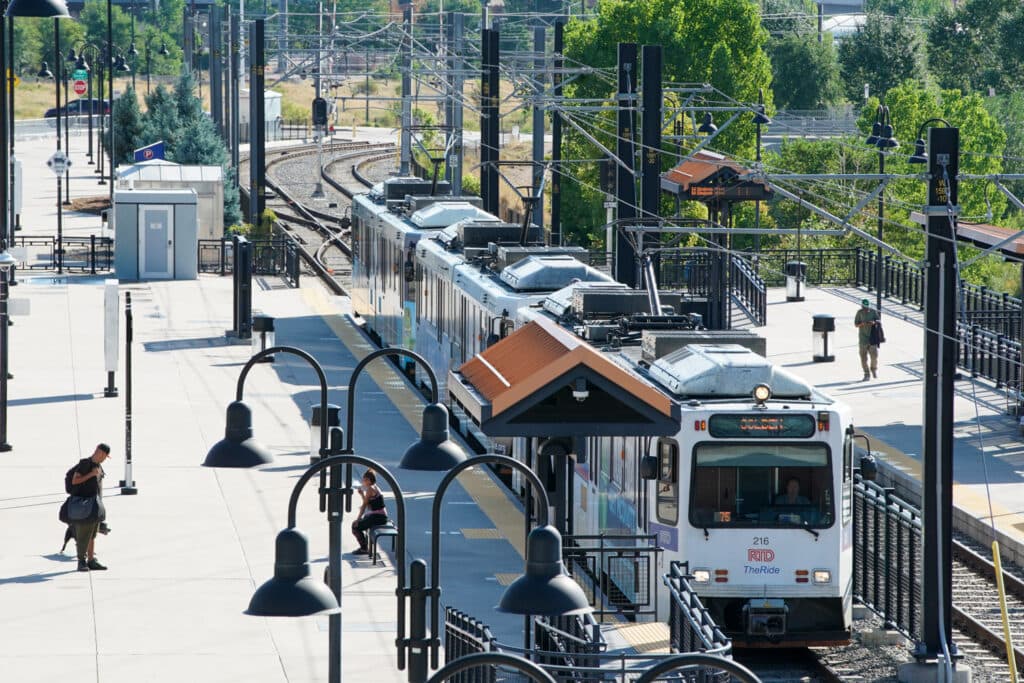
Supporters say it tackles one of the biggest barriers to transit ridership. All of Denver is within a mile of a transit stop, but many say that distance is a primary reason they don’t ride.
First Mile Free started as a school assignment by Joel Cox, a University of Denver graduate student who moved to Denver from Chicago. A professor gave Cox an open-ended prompt: come up with a proposal to improve transportation in Denver. Cox said the idea came from his own experience.
“I live about a mile from the University of Denver light rail station,” he said. “And while I want to use that transit stop more often, walking that far just isn't practical. Most days driving there defeats the purpose, and if I were to order a rideshare there, that cost tacked on to the cost of a fare just doesn't make sense financially.”
RTD is paying for two years of rides
RTD is paying about $123,000 to operate the program in 2026 and 2027, and the platforms will chip in another $25,000. That money will be used to pay for the rides, administer the program and market it.
Lime and Bird also will offer the nonprofit a 25 percent discount on the cost of the rides. It usually costs $4.50 per mile, but the grant-funded program will only have to pay $3.38 per mile.
“That just means that the grant dollars can be stretched a lot further because it's costing 25 percent less to get people to transit,” Cox said. And for riders, of course, that mile will be free.
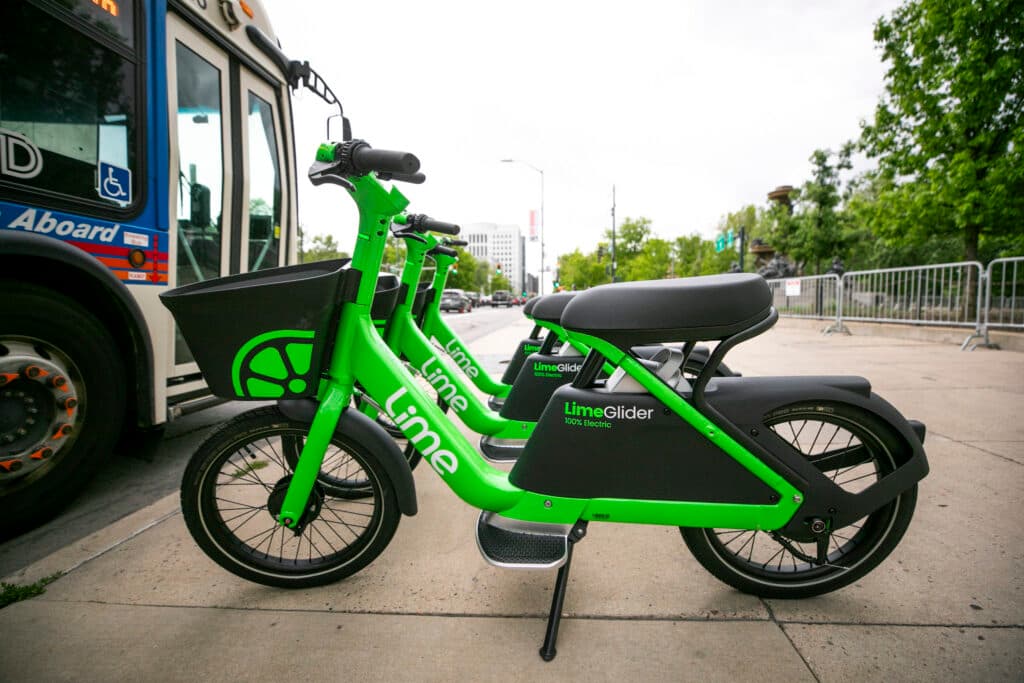
The nonprofit West Corridor TMA will run the program. Cox partnered with the nonprofit to apply for the grant.
In a letter of support, Chris Gutschenritter, the director for RTD District D, said the program is a cost-effective way to get people on transit.
“At approximately $5 per ride, First Mile Free presents a far more scalable model than traditional shuttle services, which carry significantly higher overhead. By partnering with existing micromobility providers, the program keeps costs low while meeting riders where they already are,” Gutschenritter wrote.
The pilot serves two stations in different parts of Denver. The DU station is in a wealthier part of town, while the Decatur-Federal station is in one of Denver’s more under-served neighborhoods.
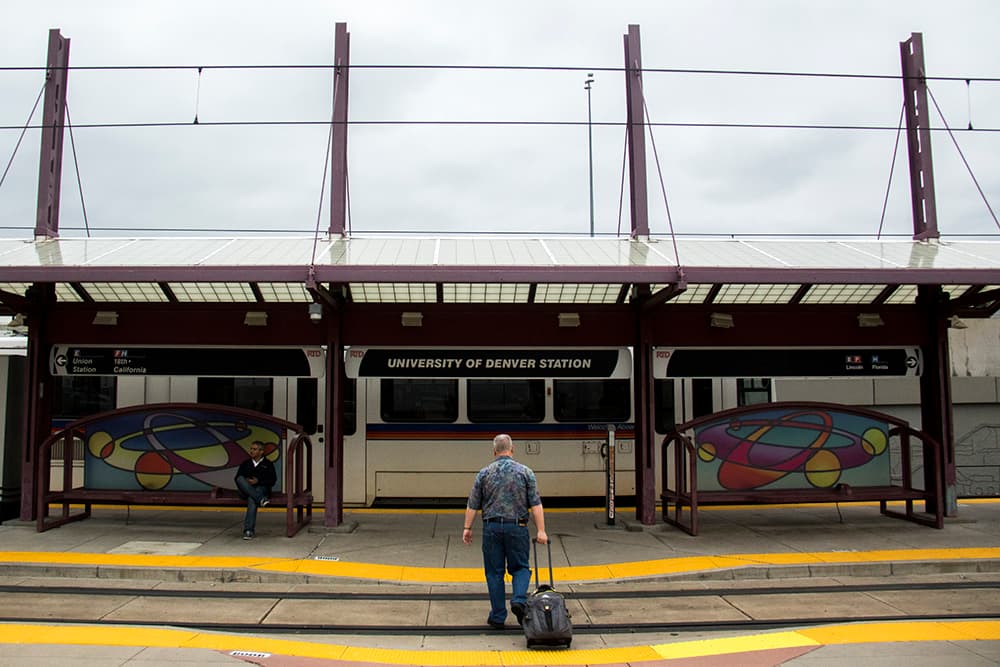
“It just seemed like a natural fit. I would say these two stations felt like the right starting point because they're both very different. And we want the pilot to test outcomes in different types of communities, but they both still face a gap in access,” said Cox.
According to Cox, the goal is to quadruple the number of Lime and Bird rides ending at the stations, amounting to 40,000 free rides across the two years.
Ninety percent of the program’s budget will pay for rides, while 9 percent will go toward marketing and outreach; 1 percent will pay for administration of the program.
Denver’s balancing act with scooters
Micro-mobility scooters and bikes have been controversial since they were deployed en masse to major cities over the last decade, drawing criticism that they were dangerous and unregulated.
Denver has been cracking down on the services lately. In May, Denver City Council unanimously approved a new law to keep riders off city sidewalks and to ensure the scooters aren’t left in random or obstructing places. The law takes effect next summer.
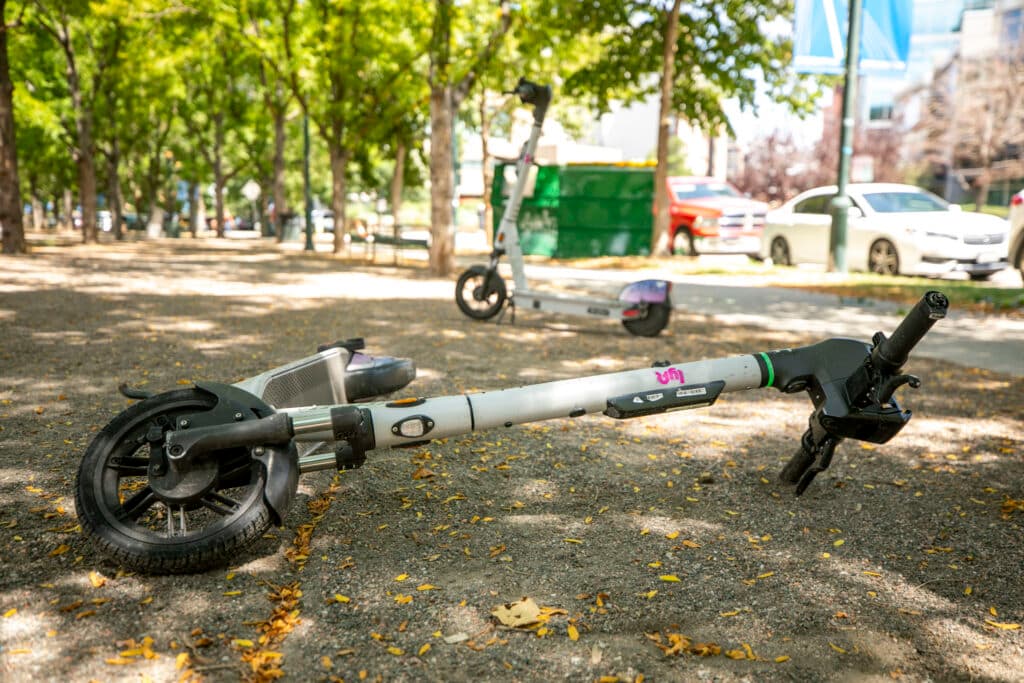
Councilmember Sarah Parady, a sponsor of the new regulations, also supports the First Mile Free initiative.
“This program comes at a timely moment, as the city moves toward requiring e-bikes and e-scooters to be parked in designated corrals in high-density areas,” Parady wrote in a letter of support. “This approach reduces sidewalk clutter, improves pedestrian safety, and aligns with the city’s broader goals for responsible micromobility.”
Denver council members Paul Kashmann and Jamie Torres also wrote letters of support.
Cox said the program encourages shorter trips, which he called the ideal use case for micro-mobility scooters.
“Unfortunately, a lot of times people are having to use these e-bikes and e-scooters to go five or 10 miles along major roads. That's when people get into accidents. So by encouraging these shorter trips, it does reduce the likelihood of someone being in an accident. It also clears up sidewalks by encouraging people to park their [scooters] at transit stations,” he said.
What happens after two years?
Cox told Denverite that the program is cost efficient, making him optimistic it will continue into the future.
A cost of “$190,000 may sound like a lot, but in the world of transportation, it's actually really small. This is a low-cost, high-impact idea,” Cox said. “It's a really lean, mean public private partnership.”
While he doesn’t know what will happen when the grant expires, Cox hopes to see the program cover “last miles” citywide.
Editor's Note: This article was updated to correct a misspelling of Councilmember Sarah Parady's name and to reflect that all Denver residents, not a minority, are within a mile of a transit stop.

